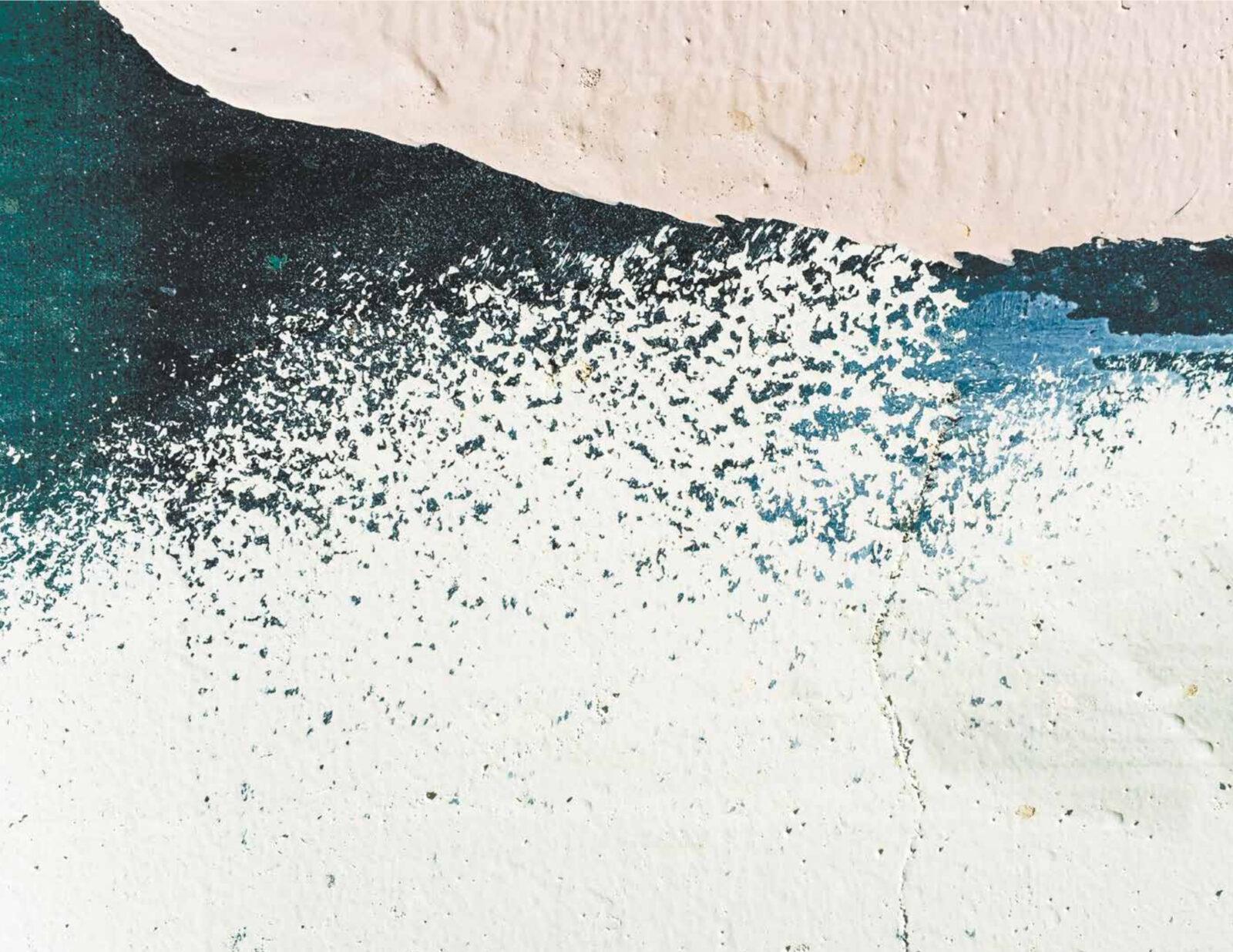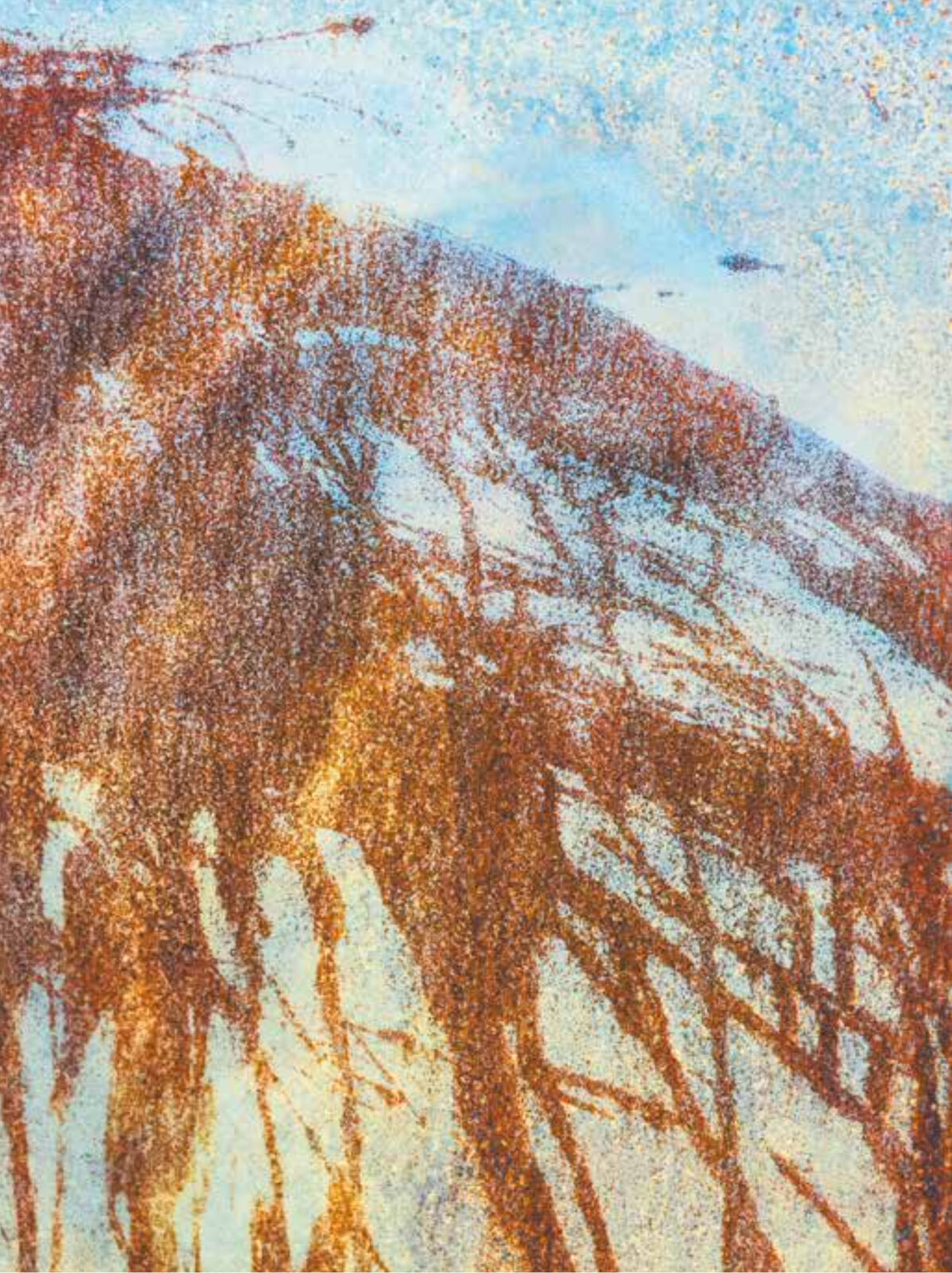
Photograph by Paul Emondson

Photograph by Paul Emondson
Ala skated across the surface of time with long, even strokes, scoring fine, shallow grooves in it with every stride. The science of it didn’t much trouble her; it was for others to take time’s temperature, for others to wonder at how they themselves could move through space in time while also standing on its surface. How often does a historian seek to understand the physics of why the sky is blue above a battlefield? Ala was a historian.
She wove carefully, effortlessly through her colleagues, looking for the patch of her study. She was very keen on a density of time that contained a tense knot of 17th strata politics, where information technologies had begun to outpace people’s capacity to reckon their effects. “Imagine,” she’d written in her prize-winning doctoral thesis, “a blade so sharp it could bleed you dry before you knew you’d been cut.”
She was looking forward to puzzling over one correspondence in particular, riddled with much-debated ambiguity thanks in part to an awkwardly placed bubble occluding the strata. But just as she was finishing her last session, the bubble shifted—infinitesimally, but enough—so with a different set of tools she could extract truly unprecedented readings. She had those tools ready now, and the snow skimming from her skates’ speed might well have built an alternate timeline.
She stuttered to a stop, though, when she saw Umu at her patch.
Umu. Once her rival, then her friend, then her rival again, to their mutual frustration and sorrow. Umu was brilliant—there was no denying it—but they’d never been satisfied by history; they would insist, not on observing the facts and interpreting them, as all sensible folk did, but on elaborating scaffolds of theory from which to hang their colleagues’ work. Where Ala focused on who, what, when, why, how, Umu focused on their colleagues’ methodology, their ethics, their assumptions. To Ala, Umu always seemed to be arguing that the enterprise of studying history was inherently flawed, because how could one study time without melting it, even by unobservable degrees, under one’s hands or breath?
All of which, to Ala, was pointless sophistry, and she’d stated—acerbically, and more than once—that Umu might be happier studying philosophy or physics.
How could one study time without melting it, even by unobservable degrees, under one’s hands or breath?
“Both of those have histories,” they’d say, with irritating calm, “and anyway, I’m perfectly happy. Now, about the ramifications of your auger on deep strata.”
And now Umu was here, scrutinizing her patch. And they weren’t alone: two individuals stood nearby with a strange tool, a conical tube mounted on a tripod and pointed at the sky.
“Ala,” said Umu, who looked, as always, placidly unruffled in the face of Ala’s oncoming storm. “There you are. Please allow me to introduce Lyl-her and Rir-him, from the Faculty of Futurisms.”
Ala raised an eyebrow, but to her credit, did not actually say those cracks? “Charmed. But what are you doing on my patch? I have important work to be getting on with.”
“Yes, about that,” said Umu, looking at Lyl and Rir, who held each other to keep from wobbling. They weren’t used to historian skates.
Lyl coughed, then said, in a voice so gravelly Ala briefly worried it would soften her patch, “Your time is melting.”
Ala frowned. “I’ve accounted for that, of course. Every deviation I cause I document. It always freezes over again. And anyway, what does that have to do with you?”
Rir leaned forward, spoke gently. “We’ve noticed a significant increase in ambient timeperature, and it seems to be radiating out from your patch.”
Ala rolled her eyes. “It’s a volatile piece of time, I grant you, but it is also, as you see, frozen.”
“But your interference, Ala,” said Umu, quietly. “What were you going to do today?”
“I was going to reassess the correspondence between the principal actors in the events of Strata 17-234-51, in light of new clarity,” she said, testily, arms folded. “All perfectly above board, surely?”
“I thought,” said Umu, “that correspondence was occluded.”
“It was,” said Ala. “But the occlusion—” she frowned, looking down at her patch. “Wait.” She sank to her knees, drew out a magnifying tool, squinted.

Photograph by Paul Emondson
The bubble’s shift was no longer infinitesimal. It was a whole observable inch over from where it had been her last session.
Ala looked up, confused and troubled. “This is impossible.”
“I have been theorizing,” said Umu, and Ala gritted her teeth, but listened. “We accept as true that we must study history in order to keep from repeating it. I say this is necessary but insufficient; if we study history carelessly, it will shape us into tools for iterating itself. If we study and extract and mine frozen time without interrogating our means and ends, we will build channels for it to flood us with itself.”
Ala blinked. “Flood? Surely that’s excessive hyperbole.”
Umu shook their head. Lyl looked at Rir, then at Ala, before murmuring, “I read your thesis, Ala-her. You write very well. The line about the blade so sharp—it has haunted me for sessions, driven my own research.”
Ala could not help but soften in the face of praise for her work. “Thank you.”
“But I always wondered—how could you see that and not relate it to the world around you? How could you be so focused on plunging your gaze deep into the time beneath that you ceased to look at the time around?”
She shrugged. “I try not to take my work home with me.”
“They are not as separate as you think,” said Umu. “Look.”
They pointed one gloved hand upward, at the sky.
Ala narrowed her eyes at it. “I don’t understand. It’s cloudy. That’s normal.”
“It hasn’t always been,” said Rir, softly. “It was once clear enough to see stars. If you look closely—”
He gestured her toward the narrower end of the conical tube, and directed her to place her eye against it. She did—and gasped.
The sky’s cloudiness was not the uniform mass of opacity it had seemed to her naked eye; there were thin, whirling lines, some of them appearing even as she watched, with a long, lazy pace that struck deep familiar chords in her.
She pulled back—blinked—looked around at her historian colleagues. She put her eye back to the conical tube.
The lines in the sky appeared at the same pace as her colleagues’ skating.
“The prophets say—‘every action has an equal, opposite reaction,’” murmured Umu. “That heat we make—it ripples through time. Below us—and above.”
Ala’s throat was full, but she had nothing to say.
She was still looking up at the sky when it began to rain.

Amal El-Mohtar has won the Hugo, Nebula, and Locus awards for short fiction and the Rhysling award for poetry three times. She reviews books for NPR and the New York Times, and lives in Ottawa with her spouse and two cats. This Is How You Lose the Time War, a novella co-written with Max Gladstone, was published in 2019 from Saga Press.
Get the latest news and stories from the Rubin, plus occasional information on how to support our work.